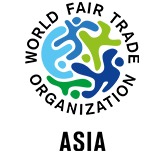Yi Xue
Mianyang Tianhong Silk Co.,Ltd
China
What motivates you to become a Board member of WFTO Asia?
My motivation to become a Board member of WFTO Asia is driven by my extensive experience in sericulture and silk-reeling, coupled with a strong commitment to promoting sustainable and fair trade practices. I am passionate about ensuring that fair trade standards are upheld and exceeded within the industry, and I bring a unique perspective from my diverse background in both the tech industry in the United States and agricultural rural affairs in China. This combination of experiences equips me with a deep understanding of technological innovation, sustainable agricultural practices, and rural development, all of which I am eager to apply to support the growth and governance of WFTO Asia.
What special skills/qualifications you will bring to the WFTO Asia Board and/or for the Fair Trade movement?
I bring over a decade of experience in engineering, sales, and marketing. My skills in organic farming, rural affairs management, modernization of agriculture, and international trade will benefit the WFTO Asia Board. At Dell Technologies, I excelled in sales and marketing, achieving the top sales position. Returning to China, I joined Mianyang Tianhong Silk, collaborating with over 4,000 local farmers and 200 silk artisans, and establishing direct sales channels with luxury European brands, emphasizing sustainability and ethical business. My interpersonal skills help me support farmers and address their challenges. My diverse background uniquely positions me to promote sustainable practices, ethical trade, and the well-being of all stakeholders in WFTO Asia.
What do you think are the priorities for WFTO Asia and WFTO for the next 5 years and how to
address them?
Strengthening Fair Trade Standards and Certification
Priority: Maintain robust, relevant Fair Trade standards adaptable to market dynamics and ethical concerns.
Strategies:
Regularly review and update standards based on stakeholder feedback and best practices.
Streamline certification processes for better accessibility to small producers.
Provide training and resources to help producers meet and exceed standards.
Expanding Market Access for Fair Trade Products
Priority: Increase market presence and consumer awareness of Fair Trade products.
Strategies:
Launch targeted marketing campaigns highlighting ethical and sustainable attributes.
Collaborate with major retailers and online platforms to expand availability.
Participate in trade fairs and expos to showcase products to a broader audience.
Promoting Sustainable and Organic Practices
Priority: Support sustainable and organic farming among Fair Trade producers.
Strategies:
Offer workshops and training on sustainable and organic techniques.
Facilitate access to resources like organic seeds and water-efficient technologies.
Implement incentive programs rewarding sustainable practices.
Enhancing Economic and Social Development
Priority: Foster economic and social development within Fair Trade communities.
Strategies:
Support projects that improve infrastructure, healthcare, and education.
Advocate for fair wages, safe working conditions, and workers’ rights.
Promote gender equality and empower women through targeted programs.
Leveraging Technology for Fair Trade
Priority: Utilize technology to improve efficiency, transparency, and reach of Fair Trade practices.
Strategies:
Develop digital platforms for supply chain traceability.
Enhance e-commerce platforms to facilitate direct sales between producers and consumers.
Use data analytics to monitor market trends and supply chain efficiencies.
Advocacy and Policy Influence
Priority: Advocate for policies and regulations supporting Fair Trade principles.
Strategies:
Engage with policymakers to promote Fair Trade-friendly policies.
Build coalitions with other ethical trade organizations to strengthen advocacy efforts.
Launch public awareness campaigns to educate consumers on the importance of Fair Trade.
Financial Sustainability and Growth
Priority: Ensure the financial sustainability and growth of WFTO Asia and WFTO.
Strategies:
Seek diverse funding sources, including grants, donations, and corporate partnerships.
Implement robust financial management practices for transparency and accountability.
Explore impact investment opportunities aligned with Fair Trade principles.
Conclusion
The next five years offer significant opportunities for WFTO Asia and WFTO to strengthen the Fair Trade movement and enhance community well-being. By prioritizing the strengthening of standards, expanding market access, promoting sustainability, enhancing development, leveraging technology, advocating for supportive policies, and ensuring financial sustainability, WFTO can lead the way in creating a fairer, more equitable global trade system.
